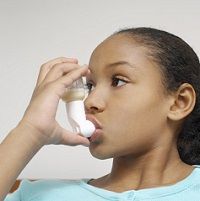Article
Evidence Points to Errors Among Pediatric Asthma Caregivers
Author(s):
How can caregivers improve their management of treatments—both in cost and in availability—for children in need of help due to asthma.

Asthma treatment in pediatric patients is burdened not only by medication availability, but by the capability of their care provider.
A study conducted with pediatric asthma patients in an urban Head Start program reported in August that less than half of low-income, minority preschool children with asthma had controller medication even ready for use at home.
The study, led by Michelle Eakin, PhD, associate professor from the Johns Hopkins School of Medicine’s Division of Pulmonary and Critical Care Medicine, found that the unfocused issues of at-home prescription asthma medication availability and treatment administration were overshadowed by clinical focus on prescription-filling patterns and self-reported adherence.
Though 96% of caregivers in the 288-children study reported having a rescue medication, Eakin and colleagues found that it was physically present in only 79% of the homes, and that only 60% of the rescue medication met all 5 standards of criteria for use readiness. Among those with children prescribed controller medication, 79% had it in the home, and only 49% had medication that met all 5 readiness criteria.
The investigators concluded the poor medication readiness findings suggested a need for more emphasis on home-based asthma management. Eakin told MD Magazine® that interventions for urban minority populations more directly focused on asthma education could increase adherence.
“I think that families would benefit from more personalized education programs regarding the different types of medicines used to manage asthma and how to ensure medication availability, such as checking to see if the medicines are expired or empty," Eakin said.
An emphasis on improved pediatric asthma caregiver education is also closely associated with improved healthcare costs. Wanda Phipatanakul, MD, MS, discussed at the 2018 American Academy of Allergy, Asthma, and Immunology (AAAAI)/World Allergy Organization (WAO) Joint Congress how community asthma initiative data for 300 pediatric patients with asthma in Boston, MA, not only reduced basal emergency department visits and hospitalizations by 46.6% and 43.4% in 12 months, respectively, but also reduced the annual costs per patient by $1621 after the first year compared with a $743 reduction in the comparison group.
Such savings start at the beginning of care.
“Fewer symptom days translated into fewer lost school days, which in turn translates to fewer lost caregiver wages—someone has to stay home and watch the kid,” Phipatanakul said. “From some economic evaluations, we estimate that every 7 symptom days in asthma is associated with 1 lost school day, and if you have a lost school day, it doubles the amount of cost.”
In a statement released this month, Ronald Ferdman, MD, pediatric allergist at the Children’s Hospital Los Angeles, provided a series of tips for caregivers looking to manage pediatric asthma. Among his tips are:
- Know the child’s asthma triggers
- Do not restrict the child’s physical activity
- Remember wheezing is not always the first sign of an asthma flare
- Daily preventive therapy is the most effective treatment for chronic asthma
- Every child’s asthma can be controlled most all the time
- Rescue medication results in quicker response to treatment for asthma flares
- Routine colds and respiratory infections are the most common triggers of asthma attacks
- Keep a steady supply of quickrelief medicine close by to the child




